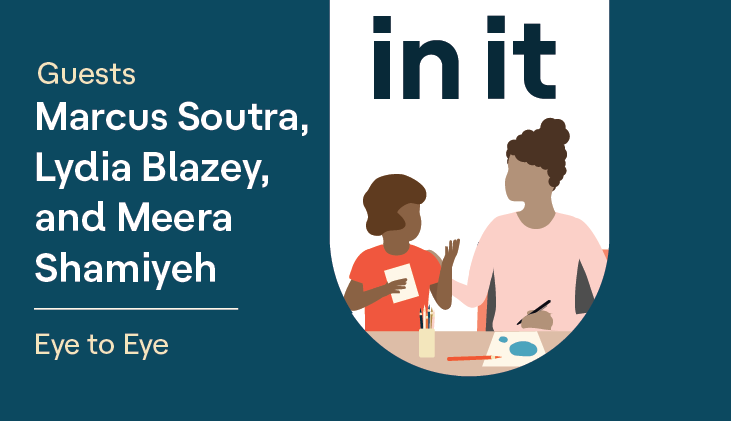Stay in the know
All our latest podcasts delivered right to your inbox.
What’s one way to empower kids who learn differently? Connect them with near-peer mentors who learn differently, too.
In this episode, hosts Amanda Morin and Gretchen Vierstra talk with Marcus Soutra, president of Eye to Eye, a founding partner of Understood. Eye to Eye brings together middle school students who learn differently with high school and college students who also learn differently. Hear how mentoring can help kids gain self-awareness and build self-advocacy skills. Plus, hear from two college students, Lydia Blazey and Meera Shamiyeh, about what it’s like to be a mentor.
Related resources
Check out Eye to Eye’s website and learn about the Strike Out Stigma campaign.
Episode transcript
Amanda: Hi, I'm Amanda Morin. I'm the director of thought leadership for Understood.org and a parent to kids who learn differently.
Gretchen: I'm Gretchen Vierstra, a former classroom teacher and an editor here at Understood. And this is "In It."
Amanda: "In It" is a podcast from the Understood Podcast Network. On the show, we talk to parents, caregivers, teachers, experts, and this week, college students. We offer perspective, stories, and advice for and from people who have challenges with reading, math, focus, and other types of learning disabilities, or sometimes known as LD.
Gretchen: Today, we're talking about what a difference a mentor can make for kids with learning differences, especially when that mentor is a little bit older than you.
Amanda: I believe the term is a near-peer.
Gretchen: Yes, that's right. A near-peer.
Amanda: And creating those near-peer mentoring opportunities is at the core of the work done by an organization we know called Eye to Eye. They bring together middle school students who learn differently with local high school and college students who also learn differently. Together, those students and their near-peer mentors tackle fun projects that are designed to help develop the skills kids who learn differently will need to thrive.
Gretchen: We're talking with three people from Eye to Eye today. Marcus Soutra is the president of Eye to Eye.
Amanda: And Meera and Lydia are undergraduates at the University of Pittsburgh, who serve as mentors to some local middle-schoolers. Each week, they get together with their mentees to work on an art project that's designed to help them build skills for learning, communicating, and self-advocating.
Gretchen: Well, welcome, Marcus, Meera, and Lydia to "In It." We're so happy to have you here. Before we get going, I'd love it if you would each briefly introduce yourselves.
Marcus: Sure. My name is Marcus Soutra. I'm the president of Eye to Eye, and, yeah, I'm very excited to be here with you all today. I live in Brooklyn, New York.
Meera: My name is Meera. I'm currently a junior at the University of Pittsburgh, and I'm studying psychology and German.
Lydia: Hi, I'm Lydia. I'm currently a sophomore at the University of Pittsburgh. I'm a double major in English literature and a program of public and professional writing.
Amanda: You know, so as Gretchen said, we're so glad to be speaking with all of you today. Marcus, I wonder if you could start us off with a little context. What is Eye to Eye?
Marcus: So Eye to Eye is a national organization that is founded by and for people who learn differently. We work every day to empower students with learning disabilities all over the country. And the core of our work is around mentorship, organizing high school and college students who learn differently themselves mentoring middle school students who have been similarly identified. We also do a professional learning program for educators so that they can better support the needs of their students in the classroom. And we do youth leadership work.
Amanda: Can you tell me how the mentoring component of it came to be?
Marcus: Yeah, sure. So, I myself am somebody who learns differently, and I was always seeking out mentors myself. Growing up with a personal learning disability, it's a very isolating experience. So when we were beginning our work at Eye to Eye, we realized how important it would have been if I was 12 years old and I could have had somebody who was 18 years old, 20 years old, who understood what it was like to have a learning disability, what it was like to go through that experience in school, and to give me the tips and tricks to be able to be successful and also be that near-peer role model, someone that really could engage with me, understand, empathize with what I was going through.
Amanda: So I do have some questions for Meera and Lydia. What does a typical mentoring session look like?
Lydia: So we have an hour with the students at the school. We'll start with introductions and a game, you know, break the ice. A lot of times they just like to talk about their day and kind of catch up with us. You know, they've always got a lot going on that they want to share. And then we'll kind of go over what we did last week just to make sure that, you know, we're remembering and making sure that, you know, they're really making the connections to what we're doing in the art room and how it's able to help them outside of art room. And then we'll get into our project. So we have a different art project each week. We've got our lesson plans. We'll kind of explain it to them and then we'll get into working. We'll split up with our mentees, work on the project, and then come together at the end to kind of go over it and talk about what they've learned.
Gretchen: What's a typical project that you do with your mentees?
Lydia: Just this past week, we worked on these metacognition cards with the kids. A lot of Eye to Eye is about metacognition: How do we think? How do we learn? Reflecting on that, so that the kids can then be able to advocate for themselves in the classroom and say, "You know, this is the best way for me to learn," and be able to ask for help. And so these metacognition cards, you know, the comparison were Pokémon cards, where you write, you know, what are your strengths, what are your challenges? And it's almost like a video game in that way. And so I think that was a fun way to connect it to the kids. Although now, being a younger generation, Pokémon isn't quite as big of a thing as it was when we were younger. But we had comparisons and we were all decorating our cards. We had, you know, stickers, markers. And like I said, we do the projects along with them. So it's nice. You know, one of our mentors is really talented artistically, and so she was showing them her card and being able to say, "You know, here's what mine looks like," and we could walk through them. You know, I got to say, "I'm not great at listening to people. You know, I need something to read. I need something physically in front of me when I'm learning." And then we just got to have a conversation with the kids as they worked through this project. It was really fun.
Amanda: It sounds really fun.
Gretchen: It does. And I think Pokémon — I think the kids are still into Pokémon.
Lydia: Maybe I'm a little out of touch.
Gretchen: It sounds a lot to me that a lot of these projects are really giving your students or your mentees words — empowering words or words to describe their differences and their strengths. So do you see a lot of power in giving these students words like that?
Meera: Yeah, absolutely. I think by having that language, that is what helps them, like, be able to advocate for themselves later on, like, you know, with high school teachers or with professors who might not be as understanding. Being able to have, I feel like, that confidence and the right language to be able to describe what they need, that can make, like, a world of difference in getting, like, accommodations and stuff.
Amanda: Can you give me an example of what kind of language you're teaching them to use?
Lydia: I think just teaching them even, you know, about accommodations and about talking about their learning difference as a learning difference rather than a disability and being able to say there are words to describe what you're going through. And I think that's a big part of feeling less alone when having a learning difference is, you know, there's already established language and established groups and movements around what you've been going through. So this isn't as isolating as it may seem when you first get diagnosed.
Amanda: So that's such a good point, letting them know that people have already developed language that can help you have those conversations. Another thing that can be really cool is when kids come up with their own words to describe what's going on for them. And it makes me think of an interview we recently did with Lizzie Acker, a competitor on "The Great British Baking Show," who's talked a lot about having ADHD and dyslexia. She sometimes refers to what's going on in her head as "brain fuzz." Is that something you see kids doing, coming up with their own words?
Marcus: Yeah, I think like I can, first of all, start with my own personal experience with that, my own kind of evolution on that, and then kind of talk about the students. But yeah, I think that was one of the hardest things growing up was not being able to put words to what was going on for you and really being able to articulate your struggle to other people and understand that struggle. Because a word like "dyslexia," to, especially to, like, a 12-year-old, it's like, "What does this mean and what does it mean for me?" There's this broad spectrum of neurodiversity.
So like myself, like, as somebody who's dyslexic and ADHD, like, I would say, like, I have a text avoidance issue, like the way that — the analogy that I would use is, like, someone maybe has, like, a social anxiety, right? Like, doesn't want to go to an event, right? So they have to have to prepare themselves. They have to like kind of psych themselves up. They're going to be in social interactions, like, they probably have little ways of kind of coping and understanding and kind of dealing with it. I go through those same processes and procedures every time someone puts text in front of me, like, I'm like, "OK, you can do this. You know how to read. You can sit down." Like, when mail comes to our house, I immediately put it in a drawer and my wife takes it out and goes, "No, we need to read this right now." And because I just want to avoid text if I can, right? And most times I'm using my audio as ways of coping with that, however, but I think that that continues to happen. And, like, when I gained that language, like, that helped me bring this clarity to myself. And then we're able to articulate that it normalizes it for a young person. Like, I would imagine someone listening right now, it's like, "Oh my God, that — what Marcus just described — is how I experience text." And hopefully maybe my language is helping mentor them in that moment to give them that language as well.
And we had a student one time we were working with, and before COVID, I used to visit the schools quite frequently and I was in the school at PS 76 in Harlem and on the West Side of Manhattan. And the students said to me they were doing this art project about their strengths and kind of correlating to their weaknesses and what other people perceived as their weaknesses. And he said, "You know, I don't read with my eyes, I read with my ears," and, like, that was just the way he perceived information best, right? He was just like, "That's how my brain works." And that mentee — I think he was, like, 11 years old — he gave me language in that moment that I didn't really have. And in that, in the day, he was making this big ear kind of a sculpture of an ear to represent. And he had all these words going into the ear to show that's how his brain received information. And he was going to throw out the art project. He was, like, not that impressed with his piece. I thought it was brilliant. So I actually have it in my office, and it's literally a sculpture of an ear with words going into it.
Amanda: That's a beautiful example.
Gretchen: So I love that you all work with middle school students, since I worked with middle school students for over 10 years, they're just like the core and my heart. They're so wonderful. And I know that teaching middle school students, there is just so much I learned about myself sometimes. And so I'm wondering, being a mentor, have you learned things from listening to your students? I'm wondering if you have any stories to share about this.
Meera: I definitely think it's helped me a lot with becoming more patient with kids and more understanding. I think working with them has also helped me understand my own learning disability better. I was diagnosed pretty late in high school, and so I never really had that kind of mentoring experience. So I feel like sometimes I'm learning, like, right alongside the kids, and that's really helpful.
Lydia: I was just going to say, with such a small group, we end up doing the projects alongside with the kids for the most part. And so a lot of times we are really, you know, doing these lessons ourselves and learning and talking about, you know, our own strengths and challenges and thinking about how we learn. Same thing as Meera, I got diagnosed pretty late. And so I never really had the language to talk about my LD or, you know, anyone to kind of reflect on what was happening in my life. It was very solitary, you know, like I couldn't compare my experiences with anyone else. And so I just kind of had to go about life as I was. And so I think being able to talk about this with a group of people, it's so much easier to see and to understand your LD in the context of learning and going to school, and you know, the different challenges we face.
Amanda: Both Meera and Lydia, you said you were diagnosed much later in your lives. What would it have meant to you to have a Marcus come in and have a conversation with you and say, "I'm putting my mail in the drawer because I'm so, like, averse to reading it right now"? Would that have changed sort of your experience, do you think?
Lydia: Whenever I kind of talk about like getting diagnosed — you know, in hindsight, doesn't feel that late, but I mean, in terms of school, I was 15, so I was a sophomore in high school, already close to graduating high school before figuring this out. And I think I got diagnosed and I got on medication, but then I just didn't really talk about it. I didn't have any friends with ADHD. I didn't know anyone who struggled in the same way that I did. You know, I was doing fine in school in terms of grades, but it just took me so long to do everything and it felt so weird. I was like, everyone else has all this free time and they're going out on, you know, weekdays to go hang out with friends, or they've got a test, but, oh, it won't take them that long to study. And it took me forever to do everything. And I just felt like, why is this taking me so long? Like, am I the only person who's spending the whole afternoon, whole evening, working on homework? So I think just having a community or having a mentor, someone to talk to and say, "Absolutely, you are not the only one who's, you know, functioning this way. You are not the only one who functions differently." I think that could have been, you know, such a helpful thing to have. And I'm so grateful for the opportunity to be that person for, you know, younger kids now.
Amanda: Absolutely. Meera, how about you?
Meera: Yeah. So growing up, I also had really, really bad anxiety, and a lot of that stemmed from ADHD and just not being able to manage it. I was also diagnosed around 15, and I think having someone who would have gone through, like, high school and college already having that experience and then being able to say, like, "Hey, it's OK, like, you'll make it through. You'll be OK at the end of the day." I think that would have just made a world of difference. I have a very vivid memory, and fourth grade, I would always be so nervous to turn my homework in, and because I was just so afraid. I am pretty bad at math. I always make like tiny mistakes and then those like, build up. And so I would never, ever turn my math homework in. And I remember, like, my dad brought me one day to school. I had a stack of papers, like, about an inch thick of just math homework, and he made me give it to the teacher. I always think about that as like a manifestation of, like, anxiety and ADHD kind of clashing. And I just think having somebody, you know, who's been through it and who kind of knew how to handle everything, you know, that could have been avoided. And it would have been really helpful for me growing up.
Amanda: I just think how lucky the kids that you're with are to have this in front of them. You know, your personal experience makes such a difference.
Gretchen: When you do these projects, has there ever been a like a light bulb moment for your mentees where they've said, "Oh gosh, now I realize this," or I don't know. I'm wondering if you've ever seen one of those moments go on in these sessions?
Meera: I think so. I had one last week. It wasn't as dramatic as like, "Oh my gosh," but we have this one mentee and she's a little on the shy side. You know, she'll talk and talk and talk, but she has a little bit of a harder time staying on track. We're doing a project called Metacognition Tree, and she made this whole 3D tree, which was very cool, and she was just having so much fun, you know, coming up with all of her different strengths and how she can use them to her advantage. And I feel like just comparing that to how she was in the beginning of the year and seeing her being able to talk about it. That, for me, was really amazing.
Gretchen: It sounds like there's definitely impact. Getting back to Marcus, I'm wondering how you're measuring that.
Marcus: Yeah, we just actually published, about two years ago now, a study with UCSF that did a really deep dive into the outcomes of our work. And so we are focusing on things like self-advocacy and metacognition and agency for the young people and building a sense of community and connectedness to peers.
What we found in that study was that we were not only we were increasing student self-esteem, we were increasing their connectedness to peers, their ability to advocate for themselves. But we also even found out that we were reducing students' depressive symptoms as a result of being in Eye to Eye, which was, you know, really difficult to see in some ways in the study because it showed how depressed some middle-schoolers really are, especially those that learn differently. But it also showed a lot of promise and hope because having just a near-peer role model, someone in their life that they could connect with and talk about these issues, had such an impact on those symptoms.
I think that's something that we, not maybe not everybody on this call, I think we probably already knew it a few years ago, but in COVID really, really learned that, like, the emotional well-being of the child is so important to their academic success. And study after study keeps showing us that students with learning disabilities, for them to have successful life outcomes, they've got to have these skills. Not saying academic skills aren't important, but to set you up for good academic skills and have the opportunity to perform well in school, you've got to have knowledge of self, ability to advocate for yourself, and just a good emotional well-being. And we've even done some studies where we tracked students' academic performance as well in Eye to Eye and saw that the students who were in Eye to Eye were performing better academically than their peers who were not in Eye to Eye as a result of focusing on these things like self-esteem and self-advocacy and metacognition.
Gretchen: I think Amanda and I would agree with you that knowing all of that is so important and the impact that it actually has on academic achievement. I know Amanda has written a lot about that for Understood.
Amanda: The agency part, I think, is really important. You know, being able to be in charge of your own life and your life trajectory matters so much. And I'm so glad that you mentioned that because I think it gets lost in the shuffle sometimes that, especially kids who learn differently, they need to be making decisions for themselves.
Gretchen: I'm so glad to hear all those impacts, and so it makes me wonder — what are your plans for expanding this program?
Marcus: Well, we are actively looking for schools all the time to sign up for Eye to Eye. We're working in 22 different states around the country right now with the mentoring program specifically. So if there are school leaders out there or moms out there or dads out there that want to bring Eye to Eye to their school, simply go to our website and just click that Bring Eye to Eye to Your School button.
Gretchen: Oh, good.
Amanda: I love that it's just a button that says Bring Eye to Eye to Your School. I love that.
Gretchen: I was going to say the same thing! The button is awesome. It's just so easy — click a button.
Marcus: Just click the button. It's like a — it's a very short, very dyslexic-friendly form.
Gretchen: Yes, you heard it out there, people. Click the button.
Amanda: So we have asked you a million gazillion questions today. Are there questions that we didn't ask you that you wished we had?
Meera: Oh, I just wanted to mention, I think it's just really cool that we're able to be a safe space for these students, and you know, they can have a place where they don't have to kind of put up a front all the time like they do usually in school. And it's just really cool.
Amanda: That's great. I'm really glad you're willing to be that space. That's something to be commended and recognized, too, is it's not easy. And you're also going to college at the same time and being that space. You're doing great things and we appreciate you taking the time to talk to us today, knowing that you're doing all of this at the same time. So thank you so much.
Gretchen: Thank you so much.
Lydia: Thank you, guys.
Gretchen: To learn more about Eye to Eye, go to E Y E TO E Y E national dot org. [eyetoeyenational.org]
Amanda: You've been listening to "In It," part of the Understood Podcast Network.
Gretchen: You can listen and subscribe to "In It" wherever you get your podcasts.
Amanda: And if you like what you heard today, please tell somebody about it.
Gretchen: Share it with the parents you know.
Amanda: Share with somebody else who might have a child who learns differently and maybe needs a near-peer mentor.
Gretchen: Or send a link to your favorite teacher.
Amanda: "In It" is for you. So we want to make sure that you're getting what you need.
Gretchen: Go to u.org/init to find resources from every episode. That's the letter U, as in Understood, dot O R G, slash in it.
Amanda: And please share your thoughts with us. You can email us at init@understood.org. Or you can leave us a message at 646-616-1213, extension 703. That number again is 646-616-1213, extension 703. And we might just share what you have to say on a future episode.
Gretchen: As a nonprofit and social impact organization, Understood relies on the help of listeners like you to create podcasts like this one to reach and support more people in more places. We have an ambitious mission to shape the world for difference, and we welcome you to join us in achieving our goals. Learn more at understood.org/mission.
Amanda: "In It" is produced by Julie Subrin. Justin D. Wright mixes the show. Mike Ericco wrote our theme music. Laura Key is our editorial director at Understood. Scott Cocchiere is our creative director. And Seth Melnick and Briana Berry are our production directors.
Gretchen: Thanks for listening, everyone. And thanks for always being in it with us.
Hosts

Gretchen Vierstra, MA
is the managing editor at Understood and co-host of the “In It” podcast. She’s a former educator with experience teaching and designing programs in schools, organizations, and online learning spaces.
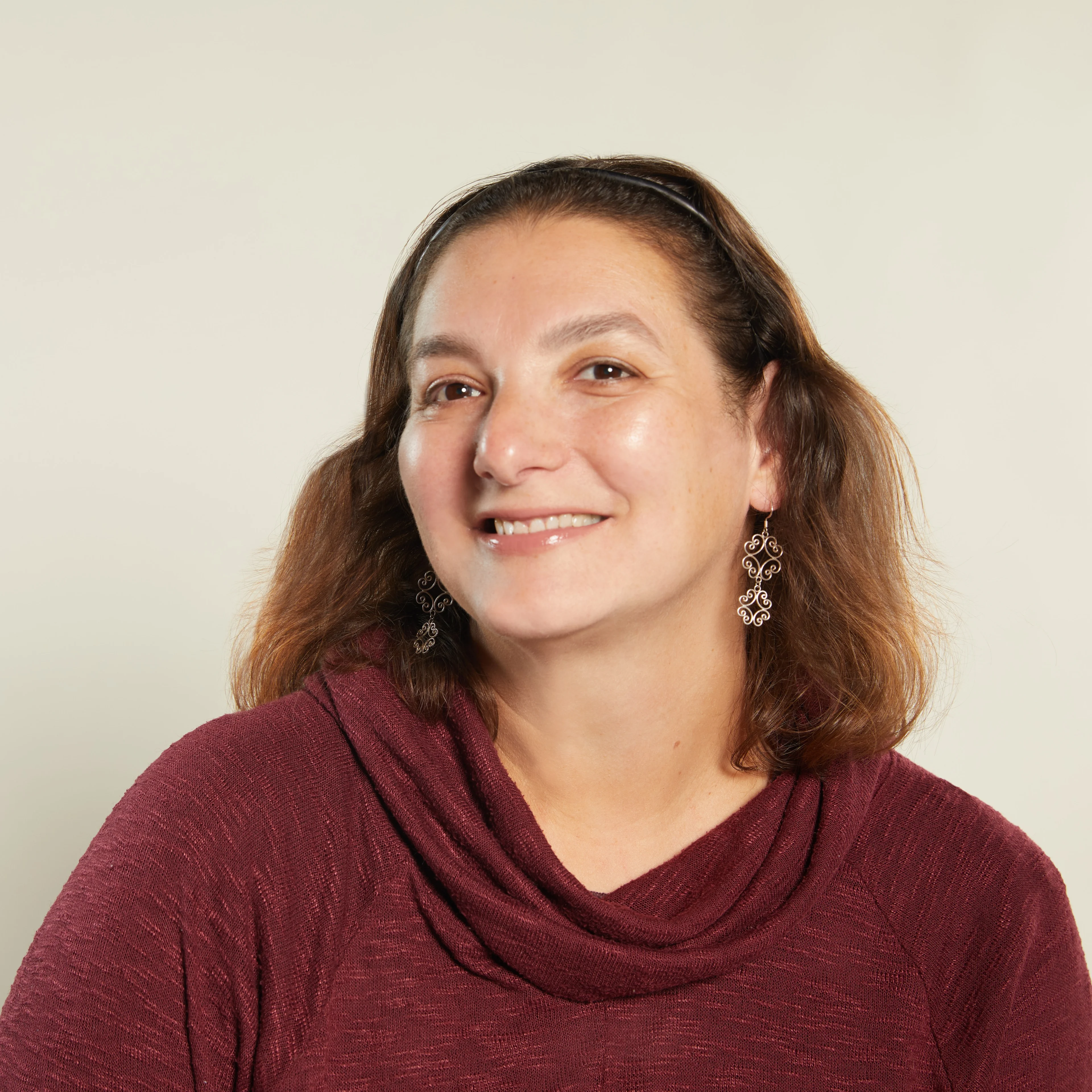
Rachel Bozek
is co-host of the “In It” podcast and the parent of two kids with ADHD. She has a background in writing and editing content for kids and parents.
Latest episodes
April 25, 2024
Learn about common reasons families might look for a special education attorney and what their other options are.
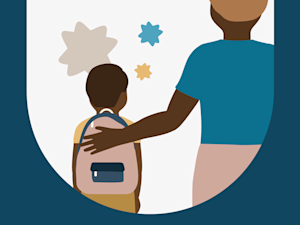
April 11, 2024
Learn ways to advocate for your child at school while maintaining a good relationship with their teachers.
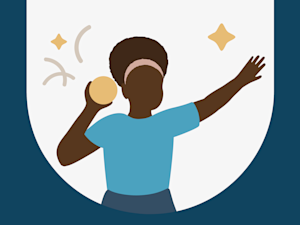
March 28, 2024
The track and field gold medalist shares her story and talks about ADHD, dyslexia, and building confidence.
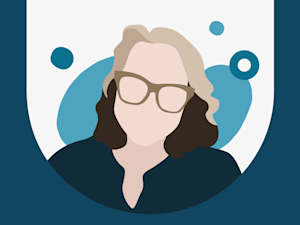
March 14, 2024
The hosts interview kids’ book author Lindsey Rowe Parker. She talks about her new picture book about sensory differences in kids.
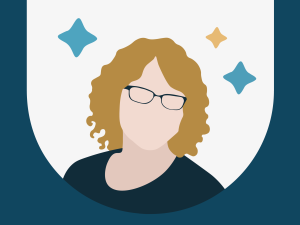
February 29, 2024
Understanding what a language disorder means for your child can be overwhelming. Here’s help from an expert.
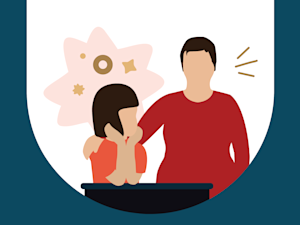
February 15, 2024
Talking with your child about their diagnosis of a learning and thinking difference can be tough. Get advice from an expert.
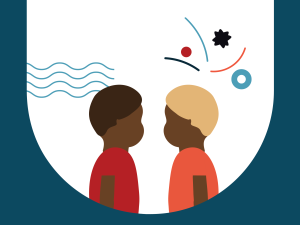
February 1, 2024
How can you manage the challenges of having one child who learns and thinks differently and one child who doesn’t? Get advice from an expert.
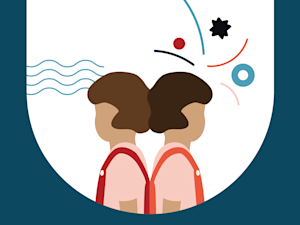
January 18, 2024
Any sibling relationship can be hard to manage. But what happens when one of the siblings has a learning or thinking difference? Here’s one mom’s story.
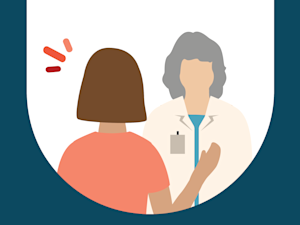
January 4, 2024
Overwhelmed by talking with your child’s pediatrician about ADHD or learning differences? These tips can help.
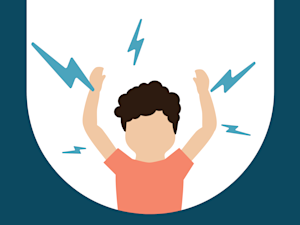
December 14, 2023
Tantrums and meltdowns are challenges all parents face. Get tips for projecting calm when kids and teens have tantrums.
